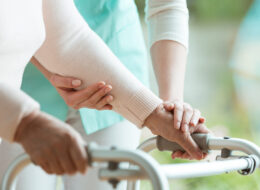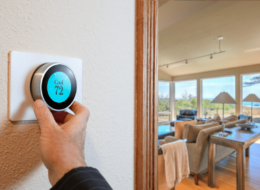Have an elderly loved one or patient who refuses to bathe, despite your best efforts to convince them otherwise?
You’re not alone.
Shower struggles are a common issue for elderly caregivers, with many seniors downright refusing to bathe. While it’s easy to attribute this rejection of personal hygiene to pure stubbornness, there are often a number of reasons why seniors refuse to bathe, from fear of falling to isolation and depression.
In this article, we’ll dig into why some elderly seniors refuse to bathe and cover thirteen ways you can convince an elderly individual to take a shower or bath without hurting their feelings.
Trying to convince an elderly loved one to shower can be stressful and frustrating. However, understanding why the senior is refusing to shower can make all the difference, allowing you to formulate solutions that may resolve the roadblocks between them and a good shower!
Reasons Why Elderly Individuals Might Refuse to Bathe
Below are some of the most common reasons why elderly seniors may refuse to bathe. However, every senior’s reason for not wanting to take a shower or bath will be different. Try to figure out why the elderly individual is not showering and address those needs or fears as best you can.
Depression
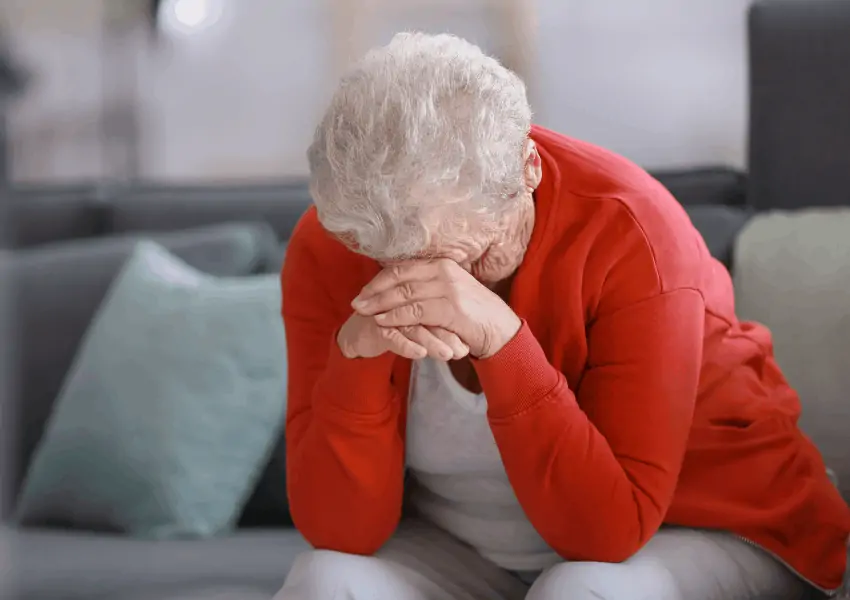
If a loved one suddenly stops taking care of themselves, it’s wise to rule out depression first
A checkup with a doctor is a good idea if low energy seems to be part of the change in behavior or if they just don’t seem interested in anything anymore.
Control
Seniors feel like they’re losing control over their lives as they get older.
As so much of their lives begin to no longer be under their control, personal hygiene feels like one of the few areas where a senior can still maintain control. After all, it’s pretty difficult (more or less impossible) to force someone to shower or bathe against their will.
The more caregivers or family members argue, the more likely an older individual is to resist and hold firm.
Lack of Smell
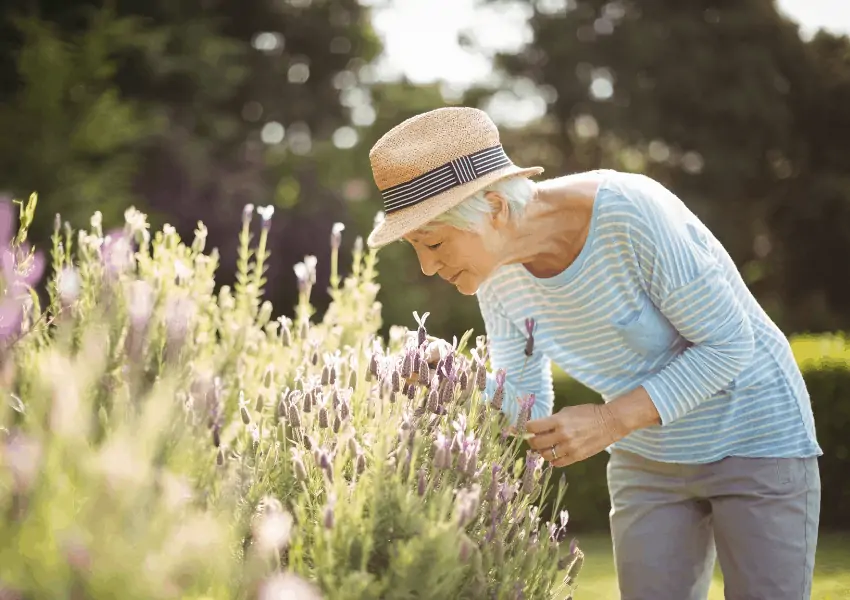
As seniors age, their sense of smell can weaken, resulting in their obliviousness to scents like urine, sweat, and other bodily odors. What may be overwhelming smells to an average person may go totally unnoticed by an elderly individual whose sense of smell is no longer so keen.
Fear
It’s no surprise that a trip to the bathroom can be a frightening prospect for many seniors.
Covered in hard, slick surfaces, the bathroom is a major spot for falls, making even a simple trip to the bathroom that much more intimidating (especially paired with the process of undressing, stepping in and out of the shower, reaching for shampoo bottles, etc)
In addition to the physical risks, moving around the bathroom can be stressful for seniors as they reflect on how once thoughtless tasks like getting in and out of a bathtub now pose great risks. It can be disheartening to say the least!
The difficulty and danger around showering and maintaining personal hygiene can result in mental fear and distress as well, when a senior considers the prospect of losing their coveted independence due to their inability to bathe themselves. This can also result in seniors implementing a number of stop-gap measures like utilizing baby wipes that – while helpful workarounds – cannot be substituted for a regular bath or shower.
Lack of Energy & Discomfort
Because bathing becomes such an obstacle for elderly seniors, some feel they simply don’t have the energy to bathe. To some, the process simply doesn’t seem worth the effort, especially considering the physical risks involved.
Even small issues, such as stepping onto the cold bathroom floor or the feeling of being freezing cold after getting out from the water, can compound and make bathing seem like too much of a struggle.
And then of course there is the joint pain and mobility impairment that makes all kinds of daily tasks difficult, from bathing to folding laundry and putting on a fresh set of clothes. Many seniors experience pain simply from bending or standing, which makes bathing that much more exhausting.
Isolation
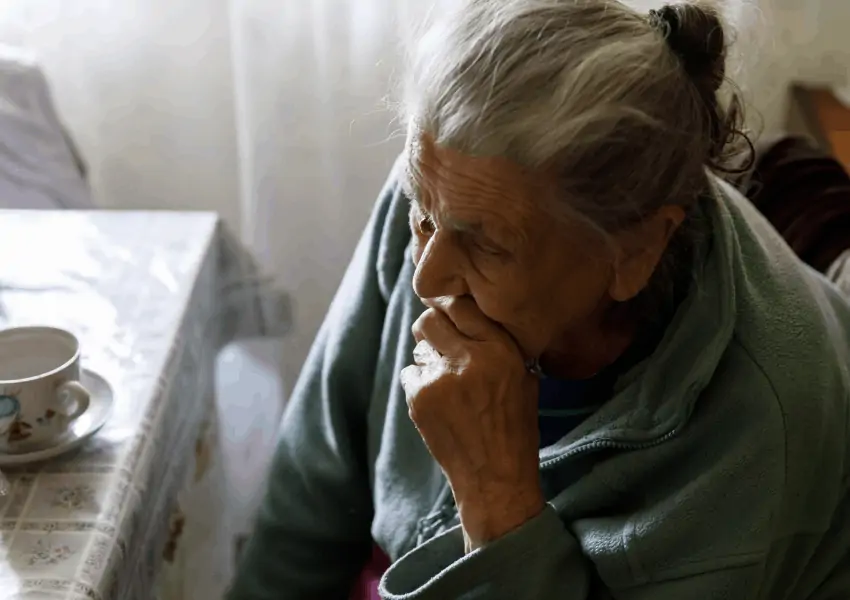
With many seniors isolated from many of the social activities they used to engage in, whether due to fewer social connections or limited mobility, some find showering pointless. Why bathe when you won’t be seeing anyone? This sense of isolation can also be a contributor to depression.
Forgetfulness
Some elderly individuals are forgetful and simply don’t remember to bathe. For these individuals, adding calendar reminders can help a senior remember when they’ve last bathed.
Cognitive Impairment / Dementia
While it’s true that some seniors are simply forgetful, others suffer from serious cognitive impairment and dementia.
Poor personal hygiene is a common symptom of dementia, including Alzheimer’s disease. An elderly individual’s cognitive impairment can bring with it difficult behavioral changes, sensitivity to stimuli, and an inability to keep track of time.
This can result in a senior refusing to bathe or mistakenly believing they have already bathed, which can result in the individual not bathing for days, weeks, or even months.
To make matters worse, dementia tends to amplify confusion, fear, and physical discomfort, making it especially difficult to convince a dementia patient to shower.
Seniors with dementia may mistakenly fear that a bath drain might suck them down, or they may not understand why water is sprinkling on them and getting anxious.
When helping someone with dementia bathe, always exercise empathy and understanding. Recognize that they are not trying to be difficult, but are genuinely confused and scared.
How to Convince an Elderly Senior to Bathe or Shower
1. Exercise Compassion
As you brainstorm ways to convince an elderly loved one or patient to shower, exercise compassion and try to see the world through their eyes.
Many tasks healthy adults take for granted are extremely challenging and stressful for mobility-impaired seniors. Be patient, kind, and do your best to validate and work through their fears, rather than write them off as silly or irrelevant.
2. Make it a Team Goal
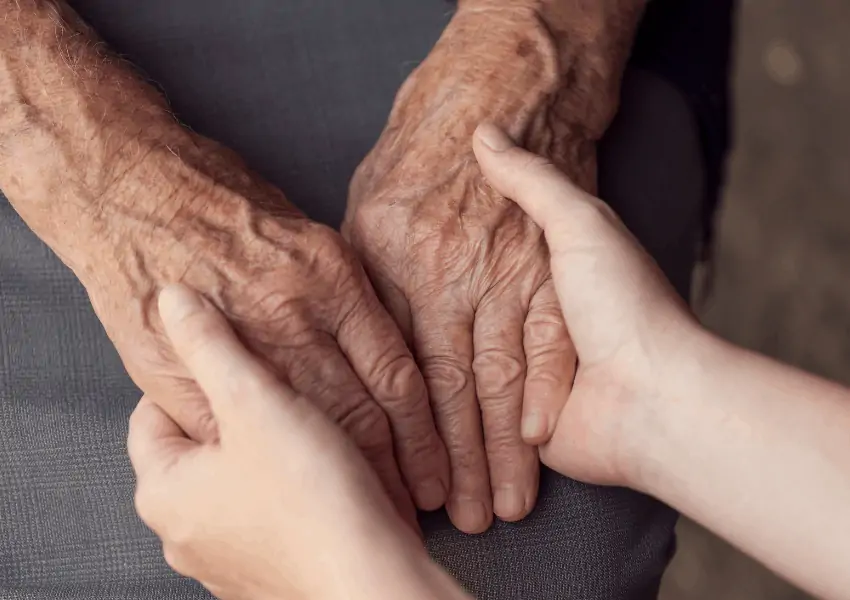
In many situations, a family member may turn the topic of a senior’s personal hygiene into a battle.
They might cajole, argue, intimidate, or even ridicule a loved one in a desperate attempt to get them to bathe. However, these methods are rarely effective.
Instead of seeing the issue with an “us vs them” mentality, try to present the bathing problem as a team effort. Avoid phrases like “you need to shower” or “you have to bathe to stay healthy” and try exercising more we-oriented language such as “let’s heat up some towels so you’ll be nice and cozy for our shower today” or “we should make sure to shower today before we go out to lunch.”
This kind of language allows the senior to feel like you are on their side and are a cheerleaders rather than an enemy.
3. Make Plans for After the Shower is Done
Similarly, it can help to make plans about the fun activities you’ll be able to do after your loved one takes a bath. This gives the senior an activity to look forward that they’ll enjoy, which helps them avoid fixating on the shower itself.
Suggest going out to lunch, going to see a movie, or another activity the elderly individual will enjoy. Try not to put too much emphasis on the shower, and instead try to situate it as the necessary predecessor to the desired activity.
So, for example, you might say:
“Let’s make sure to take a shower this morning so that we can go out to lunch in the afternoon”
4. Make Bathing Easier With Bathing Aids & Shower Equipment
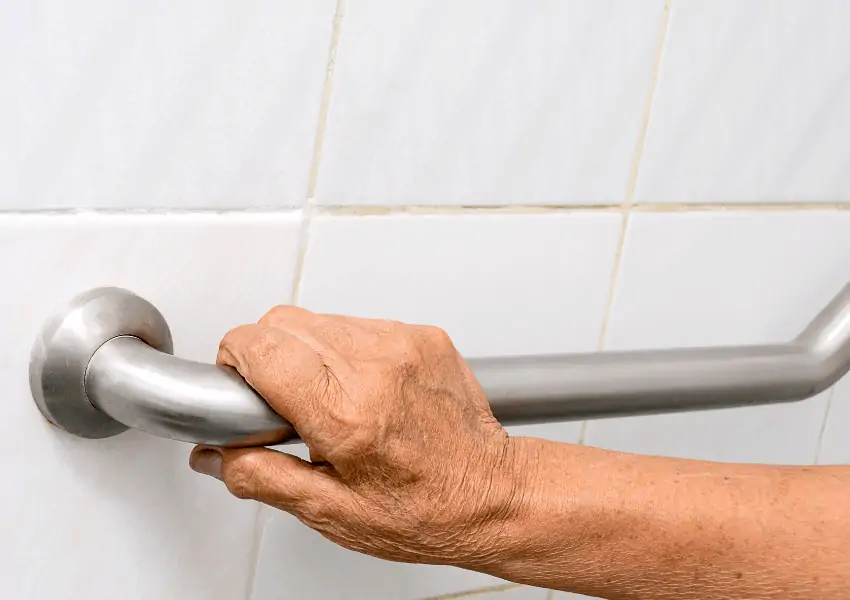
There are dozens of reasons why an elderly person may stop bathing, often due to the task becoming so challenging. From getting in and out of the tub, to getting soap in their eyes, to struggling to reach up and adjust the showerhead, the list goes on and on.
Try to identify the main bathing burdens the elderly individual is experienced and answer them as best you can.
There are many bathing aids on the market that can make showering much easier for seniors, such as:
- Shower chairs (and shower chair cushions for added comfort)
- Bath lift
- Handheld shower attachment
- Bathtub rails and handles
- Grab Bars
- Tub / transfer bench
- Non-slip bath mat
- Tear-free shampoo or no-rinse shampoo
- Extra-large sponges
- Liquid soap dispensers
5. Use Positive Reinforcement
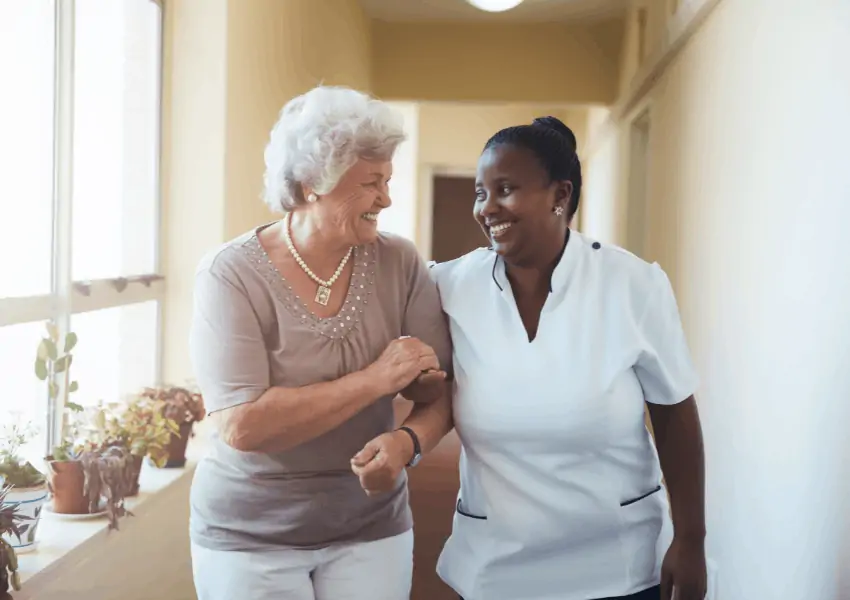
When it comes to learning, punishment is never as effective as positive reinforcement. Yelling at an elderly relative for not showering will only reinforce in their minds that they should not consult you for help or talk to you about their self-hygiene issues.
Instead, try to praise an elderly individual whenever possible, even if they are only taking small steps towards showering. For example, if they agree to have a shower chair installed, that alone is a win and worthy of praise!
When an elderly loved one finally does take a shower or bath, try praising them by saying things like, “Wow you look great today!” or “Is that a new shampoo you’re using? You smell wonderful!”
Try not to be critical or nagging, so avoid language like “See? I told you so,” or “This is why I’ve been telling you to shower, you look so much better than before.” Make an effort to focus on the positive, not the senior’s past behavior, no matter how frustrating it has been convincing them to bathe (and there’s no denying it can indeed be a pain)!
6. Consult a Trusted Person (Like a Doctor)
Many elderly seniors tend to trust authority figures like their doctor over family members – this is especially true if the doctor has been seeing the elderly patient for many years.
You might try asking the senior’s doctor to mention to them the importance of regular bathing. Or, alternatively, you can tell the elderly individual that their doctor said it was important to bathe at least once a week (or whatever amount of bathing is necessary).
Consider if there are any other authority figures the individual looks up to who you can enlist for help, such as a pastor. Elderly individuals also tend to have tremendous respect for news stations, so you can tell the individual “I heard on the news the other day that it’s recommended we bathe twice a week to stay healthy.”
Try finding a news-style video you can show an elderly loved one, like the one below:
Or, opt for a more science-packed video if you think it will be better for convincing someone to shower, such as this video from Huffington Post:
7. Don’t be Afraid of Trying Bribery
While it’s not the most tactful method, some may have success convincing an elderly person to shower with clearcut bribery – especially if the reward is considered a real treat. For example, you might offer to take a senior out for an ice cream sundae if they take a shower!
8. Respect The Senior’s Privacy
Many elderly seniors greatly value their privacy, which is why requiring assistance bathing can be so disturbing for them. In fact, some seniors will refuse to bathe simply because they know they’ll need assistance in order to do so, and they find that prospect very upsetting.
If it’s safe to do so, you should shut the door or close a curtain and step out of the bathroom while the individual bathes. You may consider placing a chair outside the bathroom door and reading while the senior bathes so you are present in case they need help.
While employing the use of certain tools or installing certain equipment may allow some seniors to bathe independently, others will need some assistance, regardless.
For those who do need an extra hand, there are a few ways you can maintain a certain level of privacy for them:
- Make sure they have a cozy robe to wear before and after bathing.
- Put a towel over the individual’s lap or their shoulders so that they don’t feel so exposed. You can then use a washcloth to clean them underneath the towel.
- Give them a washcloth to hold themselves, for something to occupy themselves with and so that they can help bathe themselves in addition.
To give the individual as much privacy as possible, consider if there are certain parts of the shower or bathing process where you can leave the bathroom and allow the individual to care for themselves independently – if it’s safe to do so.
You can offer to stand by and have them call you in for assistance when they need help with certain phases, such as getting in and out of the tub.
9. Make Bathing a Calming, Indulgent Activity
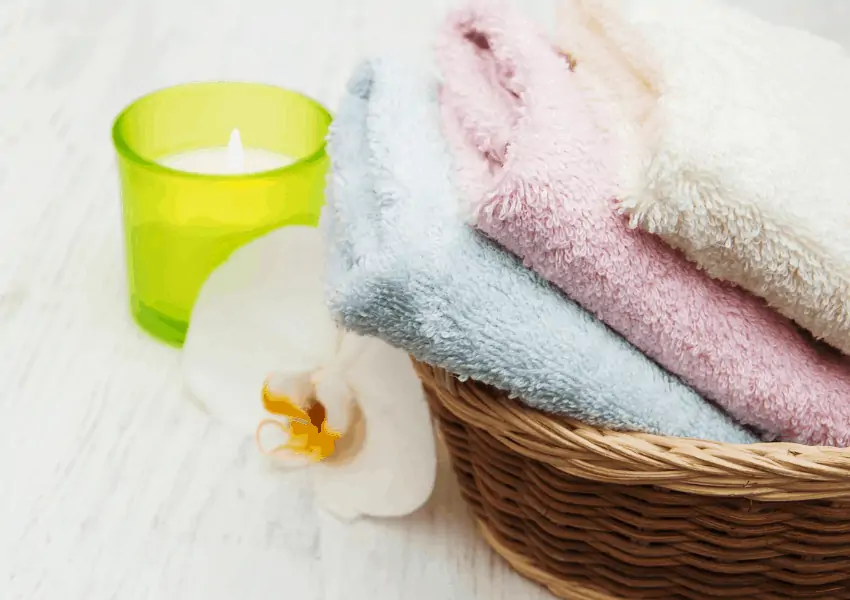
One way to get a senior interested in bathing is to make it an event! Work on transforming the scary and stressful prospect of bathing into a wonderful, relaxing, and even indulgent experience.
This can be done through:
- Candles. Light candles around the bathroom, so long as someone else can remain close by to supervise.
- Soft Music. Consider playing some classical music, jazz, or whatever the individual finds relaxing through a Bluetooth speaker.
- Whirlpool Attachment. As a real treat, you may want to purchase a whirlpool tub attachment to elevate a boring bath into a true spa-worthy bathing session.
- Cozy Robe. Purchase a soft, luxurious robe for lounging in after the bath!
- Chocolate. It may be a bit over-the-top, but when I want to treat myself sometimes I might have a piece of chocolate in the bath! Consider if a special snack might make bathing feel more like a luxury for a senior.
- Heating Lamp. Not only can a heat lamp make a bath feel more like a spa experience, it can also help with a senior who dislikes bathing because of the chill they feel after getting out of the water.
10. Offer Help While Allowing for Independence
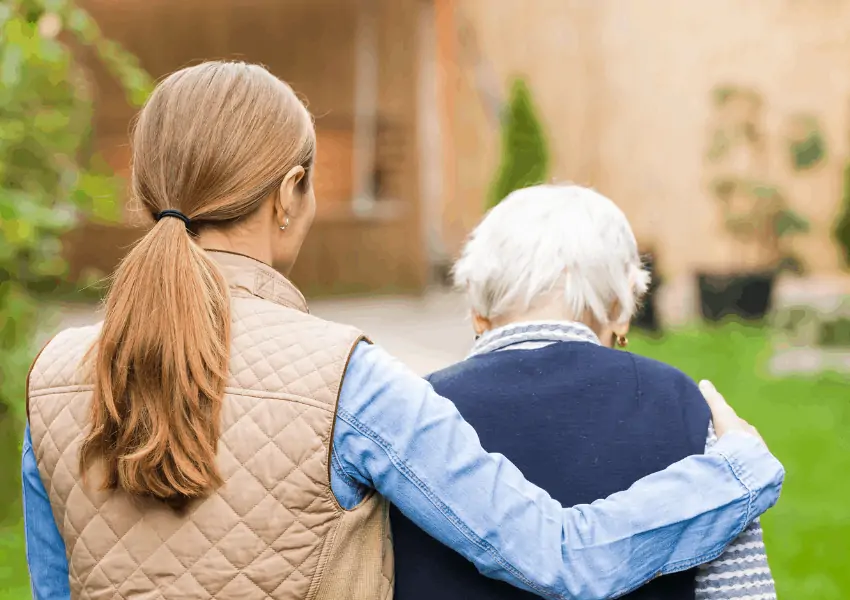
If a senior wants to shower independently, allow them to do so as long as it is safe. Brainstorm ways you can allow the elderly individual to bathe with as much safe independence as possible.
For example, you could sit outside of the shower curtain, lather up a washcloth or sponge with soap, and then hand it to the individual and let them wash themselves, only assisting with areas that they cannot reach.
This may require thinking outside of the box depending on the senior individual’s capabilities, but even offering a small degree of independence can go a long way to making bathing more of a desirable activity.
11. Offer Choices
Since lack of control is a common feeling that makes seniors refuse to bathe, consider ways you can offer back at least some control within part of the bathing process.
You might ask a senior:
- Would you like a bath or a shower?
- Do you want to listen to classical music in the bath, or oldies?
- Would you like to use coconut shampoo or berry-scented?
- What time should we take a shower?
12. Find the Perfect Time of Day
Some seniors may prefer to bathe in the evening, while others like to feel freshened up in the morning. Find out what time of day the individual prefers to bathe and help support that choice.
For patients with dementia, sticking to the individual’s established routine can increase your odds of success.
If you’re not sure which time of day they prefer and they aren’t able to tell you, try alternating between morning and evening bathing sessions and keep track of when the individual seems happier and more compliant.
Choose whichever time of day they seem to prefer!
13. Stick to a Routine As Much as Possible

When getting an elderly individual to shower or bathe, sticking to a routine is very important. Creating a routine allows habit to work in your favor, and will make arguments about whether to bathe or not irrelevant since the precedent has already been established.
While some diversions from the plan will happen, sticking to a set routine is often best.
How Often Should an Elderly Person Bathe?
Make sure you are setting realistic bathing expectations for seniors.
Many healthy adults tend to assume that daily bathing should be the norm. But truthfully, just bathing once or twice a week may be just fine for an elderly senior, especially if they are less active and supplement their weekly baths with wet cloth wipe-downs.
Many elderly seniors grew up only bathing once or twice a week, as that was usually the norm for them. Especially as they get older and potentially begin to deteriorate mentally, regressing to a routine that was normal for them in their childhood may be easier for them to manage.
Bathing Alternatives for Elderly Seniors
If taking a bath or shower simply feels like an impossible task for a senior, there are other options available.
Sponge Bath
While showering or bathing in the tub is usually the easiest option for a complete cleaning, if an elderly senior has completely refuses or has limited mobility, a sponge bath can work fine too.
To give a sponge bath:
- Start at the top, with the senior’s face and head
- Move down the body, saving the private parts for last
- Only uncover one part of the body at a time as that area is being washed to keep the bather warm and maintain privacy
- Wipe down one area at a time and change washcloths for each new section so that you aren’t wiping down the individual with a dirty cloth.
- Be gentle when rubbing an elderly individual’s skin, as aging skin is much thinner and more sensitive. Also, be sure you are using mild bath products that won’t irritate sensitive skin.
- Finish off the bathing session with a moisturizer to prevent skin from drying and cracking.
Wipes
While wipes are not a substitution for bathing, they can serve as a good quick clean-up option in between full bathing sessions.
Bath vs Shower: Which is Safer for Seniors?
When it comes to a bath or shower, you’ll likely want to choose whichever option the senior prefers.
However, if you are worried about the risk of falls even if you are present in the bathroom, the bathtub is far safe than the shower as the individual only has to stand to get in or get out. You can’t fall down when you’re already lying down in a bathtub!
If you have an elderly loves one who prefers showers over baths, a shower chair can reduce the risk of falls, in addition to installing a handheld shower head which can be more easily maneuvered without required the user to stand.
Do you have any additional tips or advice about how to get an elderly loved one to bathe or shower when they refuse? Share your strategies in the comments!

